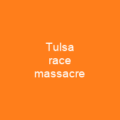What Exactly Is a Massacre?
A massacre is an event where people are killed who are not engaged in hostilities or are defenseless, typically used to describe targeted killings of civilians by armed groups or individuals. Have you ever wondered why the term ‘massacre’ carries such heavy connotations? It’s because it’s more than just a word; it’s a stark reminder of humanity’s darkest moments. The term originates from late 16th-century Middle French, meaning ‘slaughterhouse’ or ‘butchery,’ and was initially used in hunting terminology before taking on its modern connotation.
Imagine a butcher’s shop where the only difference is that instead of animals, it’s humans being slaughtered. That’s what a massacre feels like – an unimaginable act of violence against innocent people. The word was loaned into English in the 1580s, specifically referring to indiscriminate slaughter of a large number of people.
But why does this term resonate so deeply? Could it be because we recognize the horror and want to ensure such atrocities never happen again?
The Historical Context
Historical events like the St. Bartholomew’s Day massacre and the Åbo Bloodbath have been described using this term, marking significant chapters in human history where innocent lives were lost. These massacres are not just isolated incidents; they represent broader themes of conflict and injustice.
Is it possible that these events serve as a mirror to our own times, reflecting the ongoing struggles for peace and justice? The term ‘massacre’ is often used metaphorically in journalism to describe non-lethal events like the Saturday Night Massacre. This shows how the term has evolved beyond its original meaning, encompassing a broader spectrum of violence.
Classifying Massacres
Levene (1999) attempts an objective classification of massacres by requiring that they must have the quality of being morally unacceptable. This means that any act where innocent people are targeted and killed, regardless of the scale or method, is considered a massacre.
The term ‘fractal massacre’ refers to two phenomena: the fracturing of Aboriginal tribes and the addition of many small killings resulting in a larger genocide. This concept highlights how smaller acts of violence can accumulate into something much more devastating over time.
Is it not true that every life lost is significant, no matter the scale? The cumulative effect of these smaller acts can be just as destructive as a single large-scale event. It’s a sobering thought to consider how we might prevent such accumulations from happening in the future.
Distinguishing Between Types of Massacres
Mass killings can be carried out for various reasons, including false rumors or political motives. These should be distinguished from criminal or pathological mass killings. Understanding these distinctions is crucial to addressing and preventing such events in the future.
How do we ensure that our actions align with moral standards? Can we learn from past mistakes and work towards a more peaceful world?
The Weight of Words
The term ‘massacre’ carries immense weight, serving as a powerful reminder of the atrocities committed against humanity. It’s a word that demands attention and action, urging us to confront the darkness within ourselves and work towards a brighter future.
As we reflect on these events, let us remember the importance of empathy, understanding, and compassion. The term ‘massacre’ is not just a historical reference; it’s a call to action for all of us to strive for peace and justice in our world.

Let us use the term ‘massacre’ as a catalyst for change, ensuring that such events are not repeated. The weight of words can be heavy indeed, but together we have the power to make a difference.
You want to know more about Massacre?
This page is based on the article Massacre published in Wikipedia (retrieved on December 18, 2024) and was automatically summarized using artificial intelligence.







